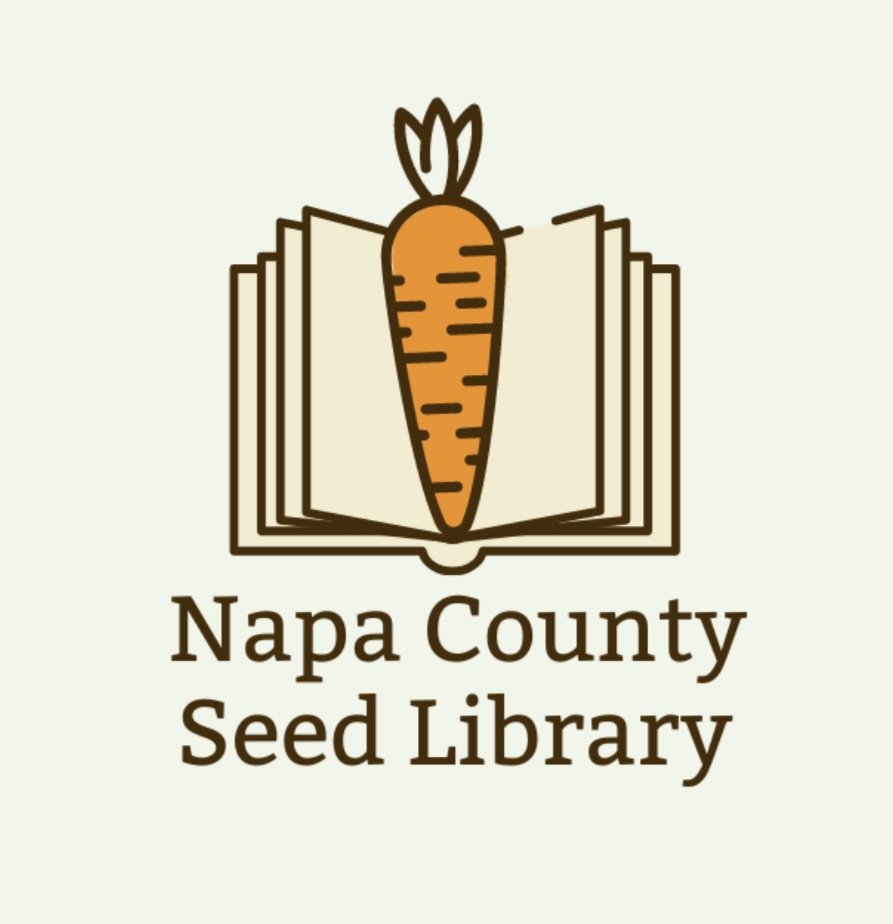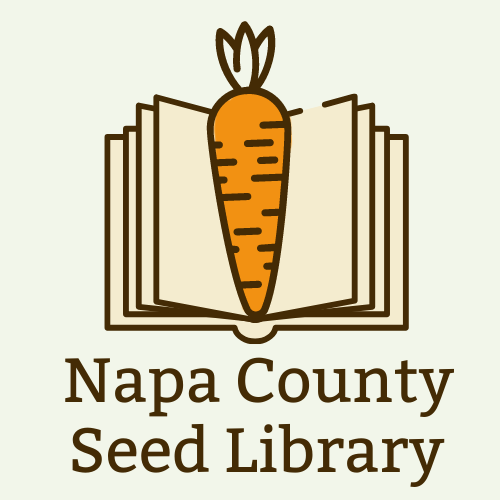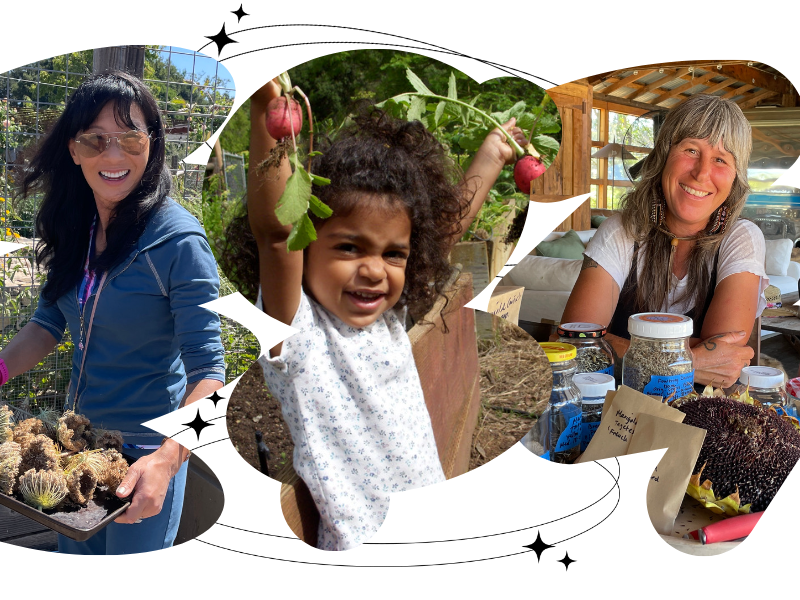Seeds to Sow in September
In September, heatwaves are still on and off in Napa County as the grapes ripen to their peak level of sugars.
In this month we experience cooler evening temperatures—the kind that fall and winter crops come alive in. September is part of this multi-faceted “shoulder season,” when you can save and share seeds, plant more seeds, and continue to harvest late summer crops.
Save and Share Seeds
Which seeds did you want to save when you planted them in the spring? September is the time to harvest these seeds to use again. Every one of the five easiest seeds to save are ready to harvest this month: lettuce, peas, bean, marigold, and tomato. Learn how by watching our playlist 5 Easy Seeds to Save. in addition to this one, we’ve created many more short and long videos to help you save all kinds of seed types. Go to our Harvest Seeds page or YouTube channel to get all the details about how to save and store your seeds.
Call for Seeds
We need your help! Please return your saved seeds to fill our seed library annexes. Our seed inventories are at their lowest in fall. Seeds we need in September are peas, California native wildflowers (especially narrow leaf milkweed), lettuce, celery, leeks, carrots, cabbage, cilantro. beets, radish, spinach, Brussels sprouts, broccoli, chard, turnip, onion, cucumbers, peppers (esp. hot varieties), tomatoes (esp. cherry varieties), all flowers (except calendula), and all herbs.
Plant Seeds
You can plant a variety of fall and winter crops and sow seeds for spring blooms in September. Directly plant seeds of root vegetables (carrots, beets, radish, etc.) into the soil, and broadcast seed of California native wildflowers, which will arrive next spring.
Native wildflower seeds benefit from cold stratification – the period when they are buried in the soil over the winter months. This allows them to sprout easily when the soil gradually warms at the end of the wet, winter season. Other flowers like snapdragon, viola, lavender, and pansy are also great to plant directly into soil in September. Be sure to label where you’ve spread your flower seeds and watch for surprises next spring.
Some seeds benefit from starting indoors this month. If you love cole crops (aka cruciferous vegetables or Brassicas), such as kale, cabbage, broccoli, collards, then this is the time to start these seeds inside in a greenhouse or near a sunny window indoors. In a couple of weeks, you’ll transplant these as seedlings (young plants) when cooler temperatures arrive.
Veggies 🍆🌽🍉
bean, beet**^, broccoli, Brussels sprout**, cabbage**, carrot, cauliflower, chard, celery, collard, endive, kale**, leek, lettuce**, maché, parsnip, pea, radish, radicchio, spinach**, Swiss chard, turnip
Herbs 🌱🪴🍃
chives, chervil, cilantro, fennel, lemon balm, marjoram, mint, oregano, parsley, rosemary, sage, tarragon, thyme, watercress
Flowers 🌼🪻🌻
calendula, columbine, cosmos, echinacea, carnation, larkspur, lavender, nasturtium, nigella, pansy, poppy, rudbeckia, snapdragon, wildflowers
(**) start indoors
(^) transplant from seedlings or cuttings
Harvest Everything!
The patience and labor you spent in August brings warm weather crops in abundance this month. You’ll continue to get eggplant, tomatoes, beans, squash out of the garden. Pumpkins are gaining their largest growth this month and corn turns its colors on its leaves and kernels to signal fall. Enjoy the bounty and note which of your plants produced the healthiest, most beautiful, and delicious fruit, flowers, and leaves throughout their growing season to savor the season and save the seeds. In this short video called "3 Secrets to Seed Keeping” learn how to store your saved seeds so they are ready for you next season.









